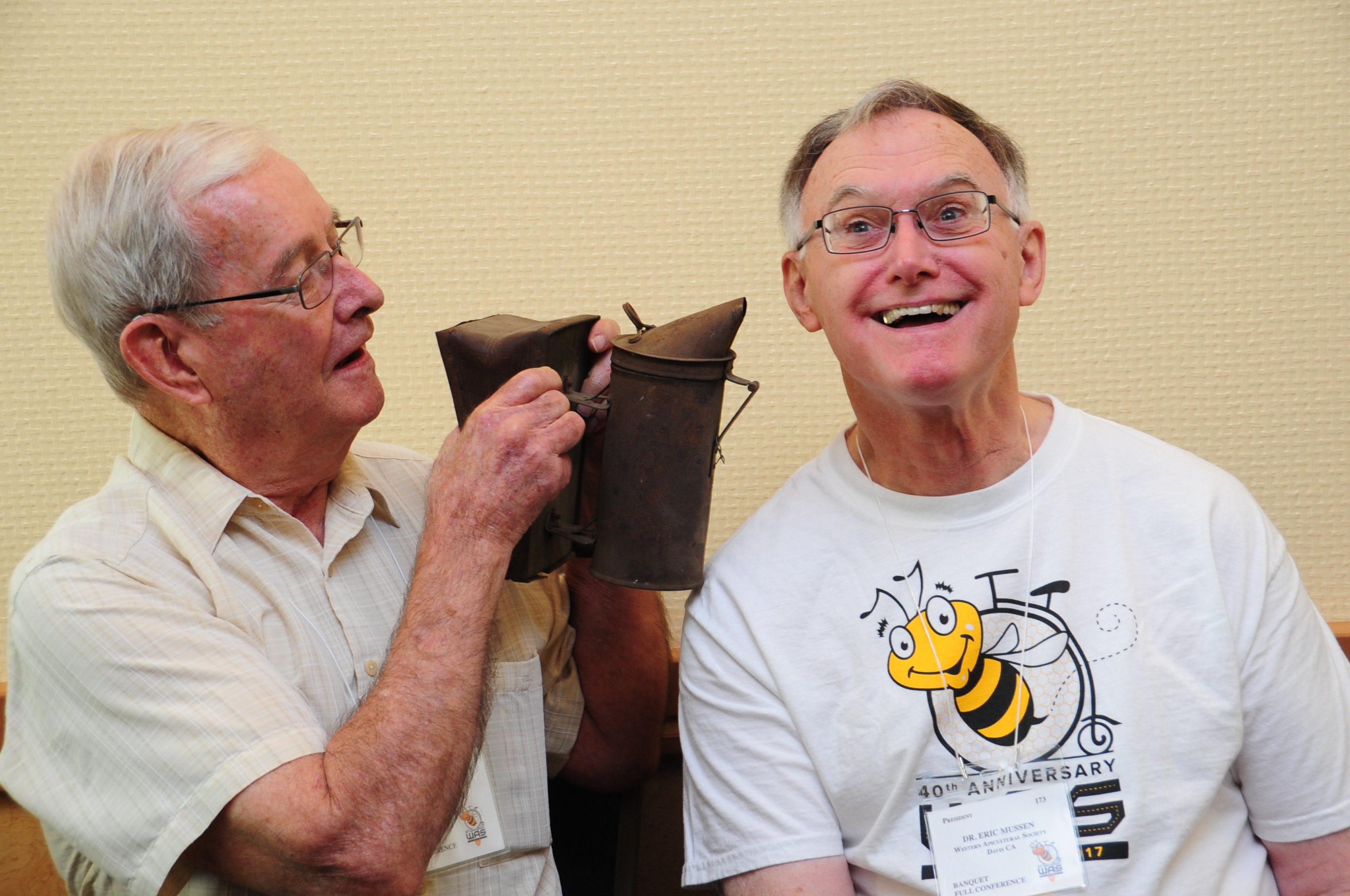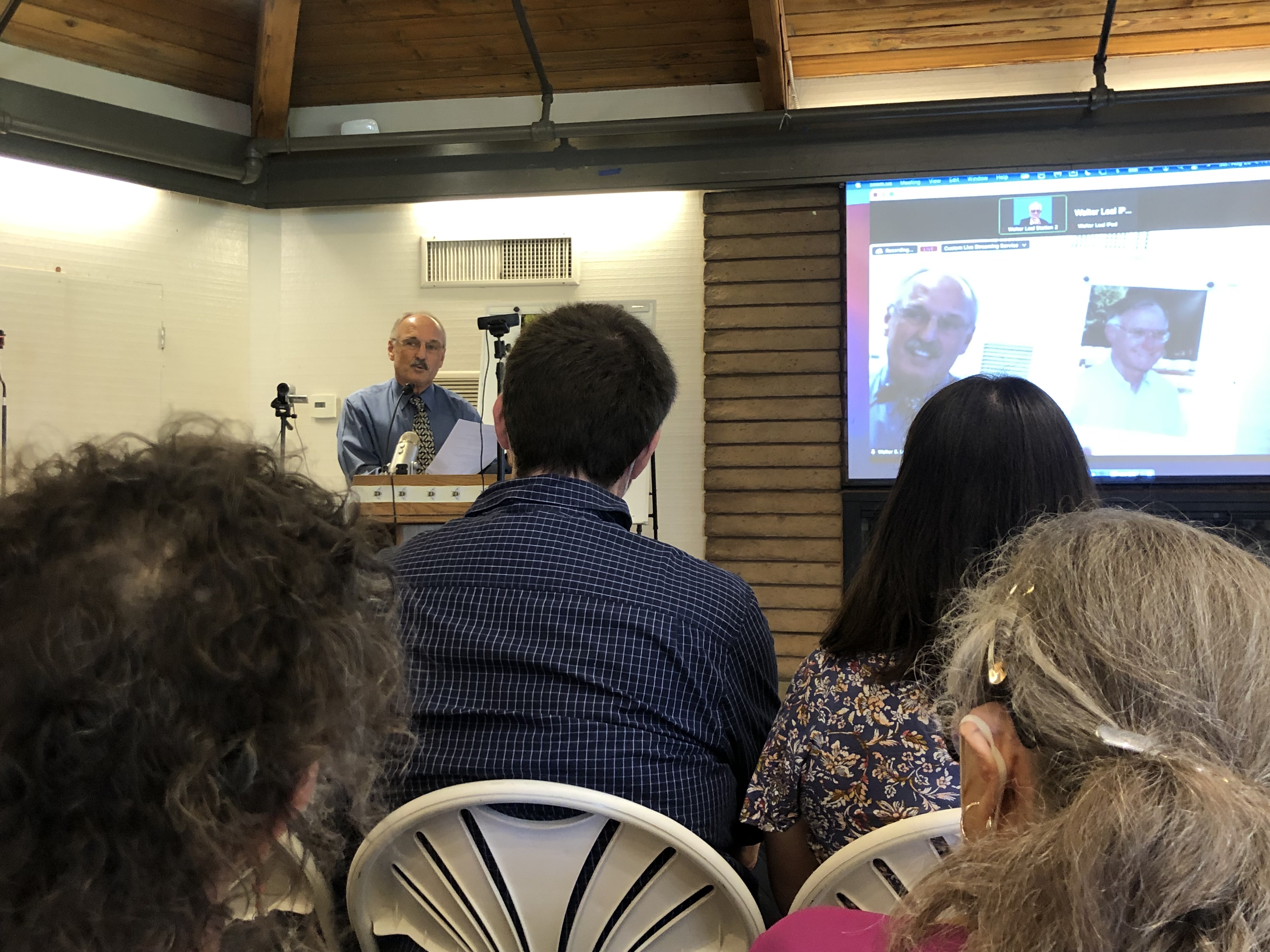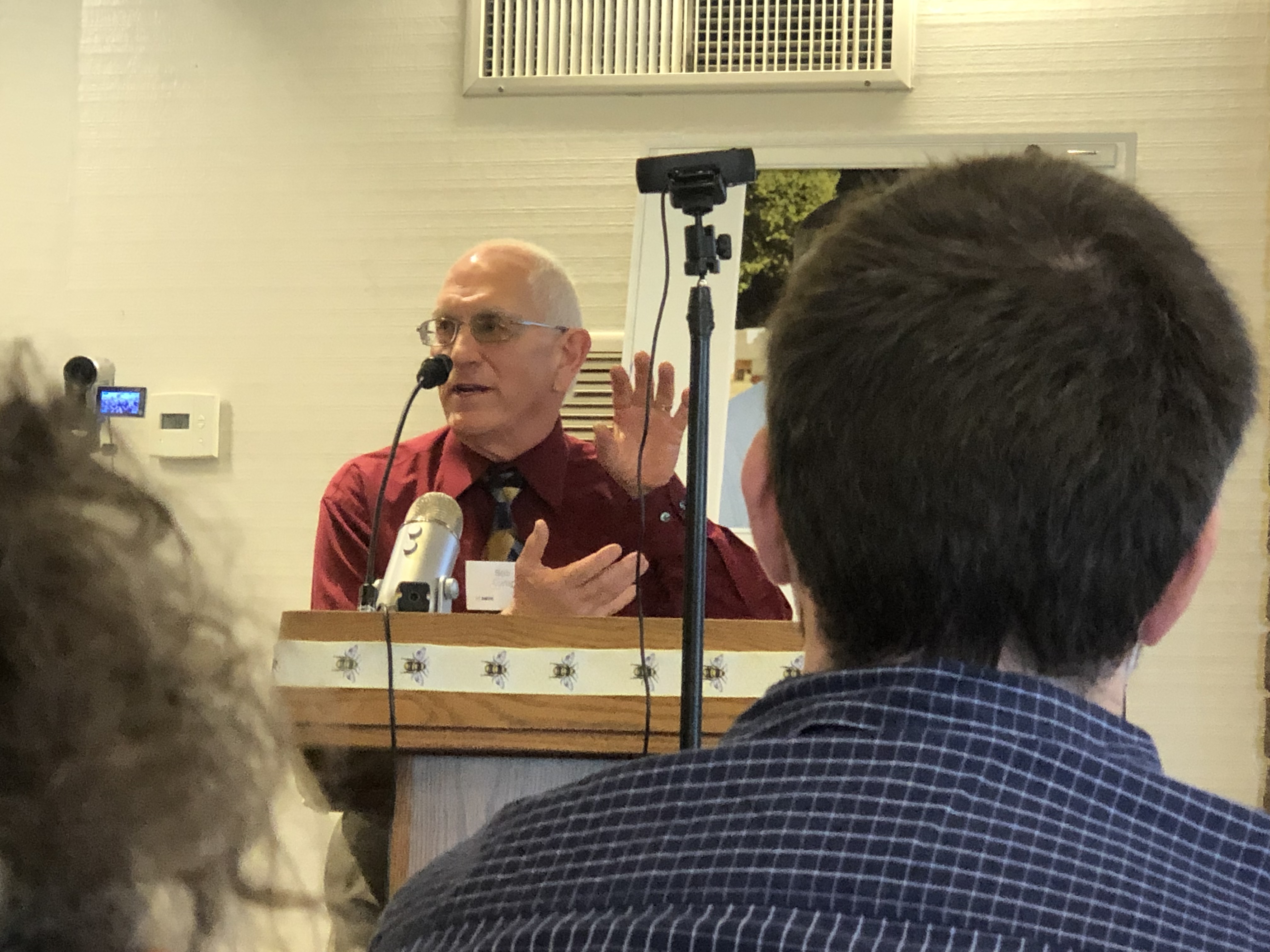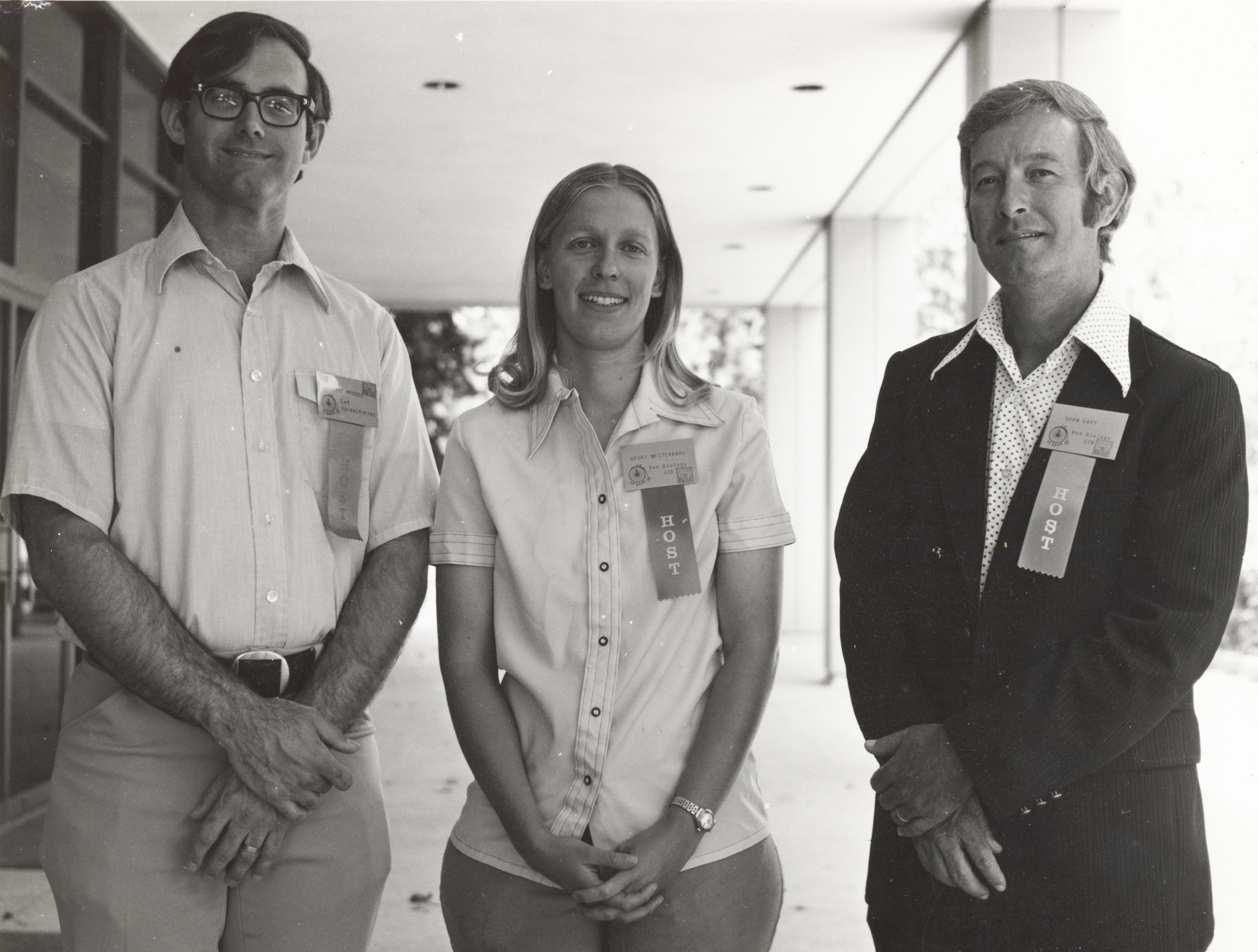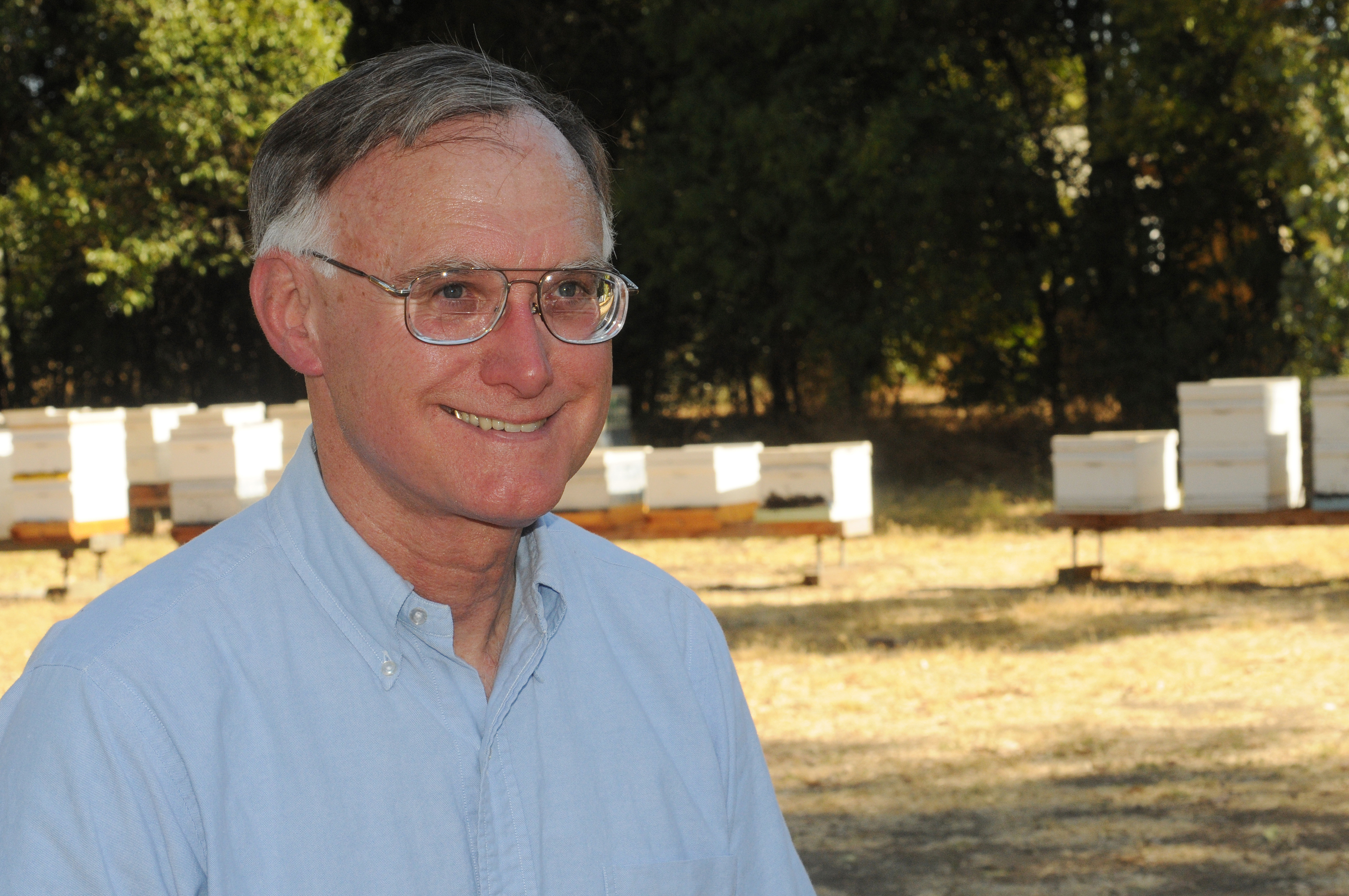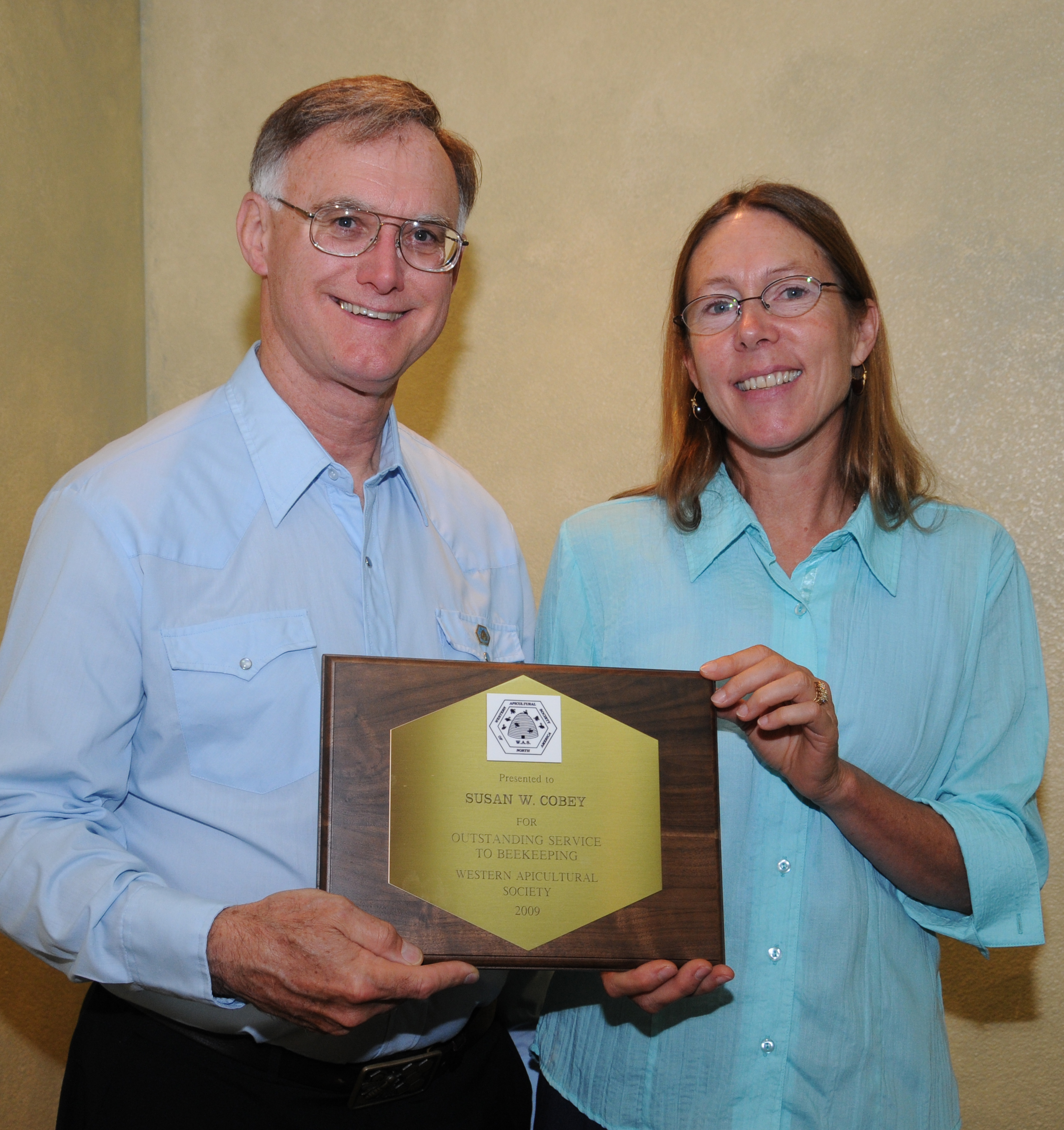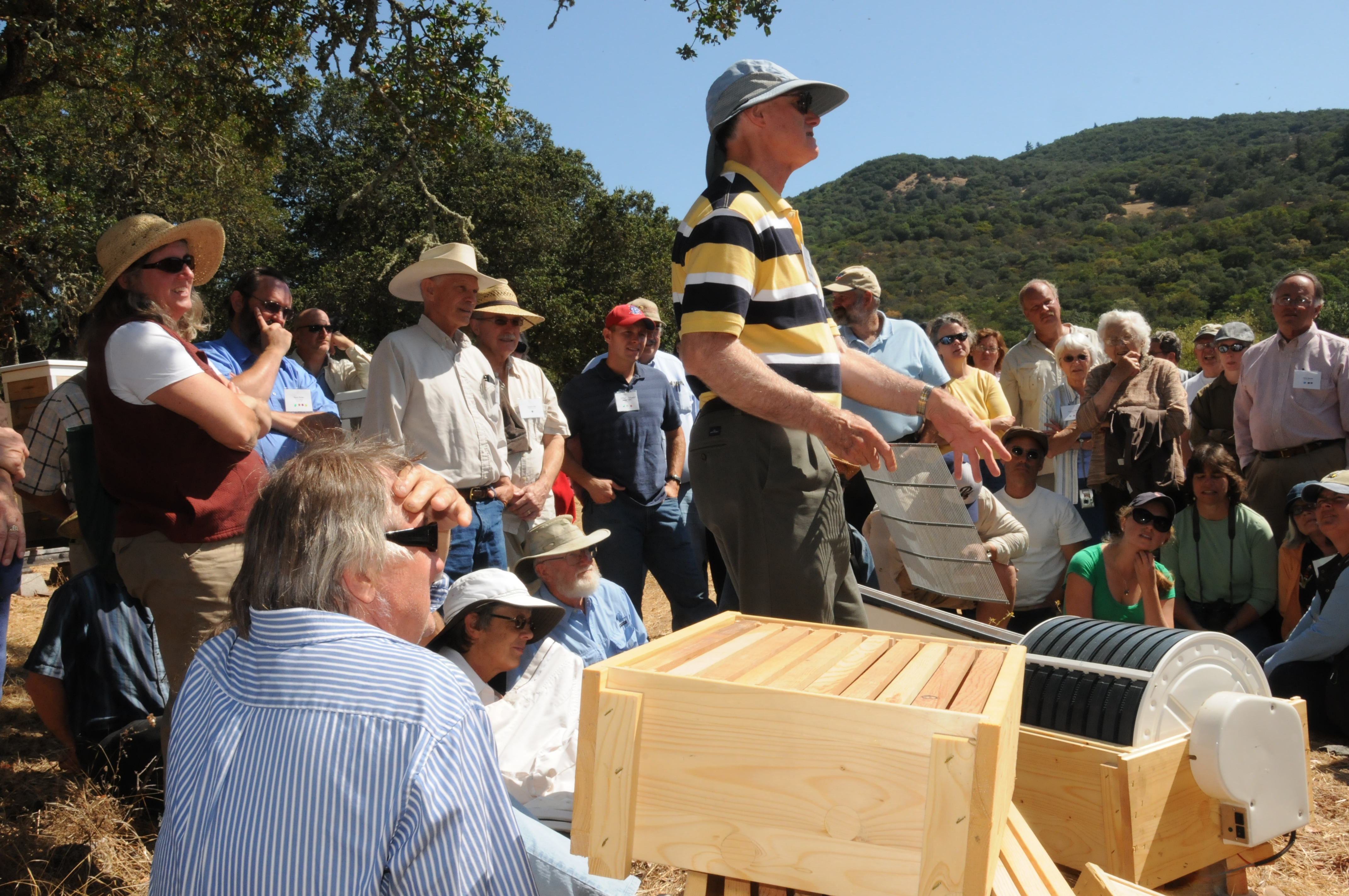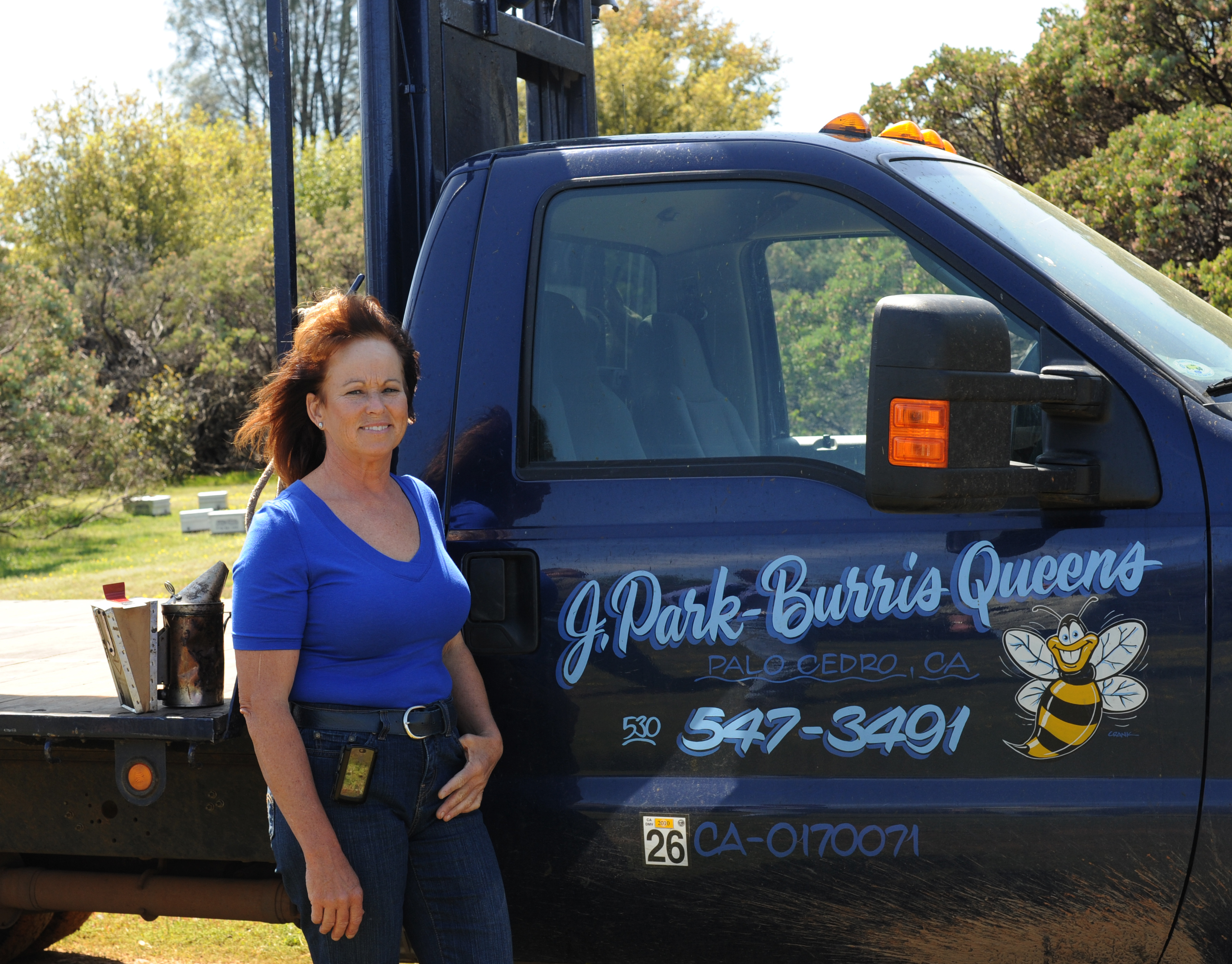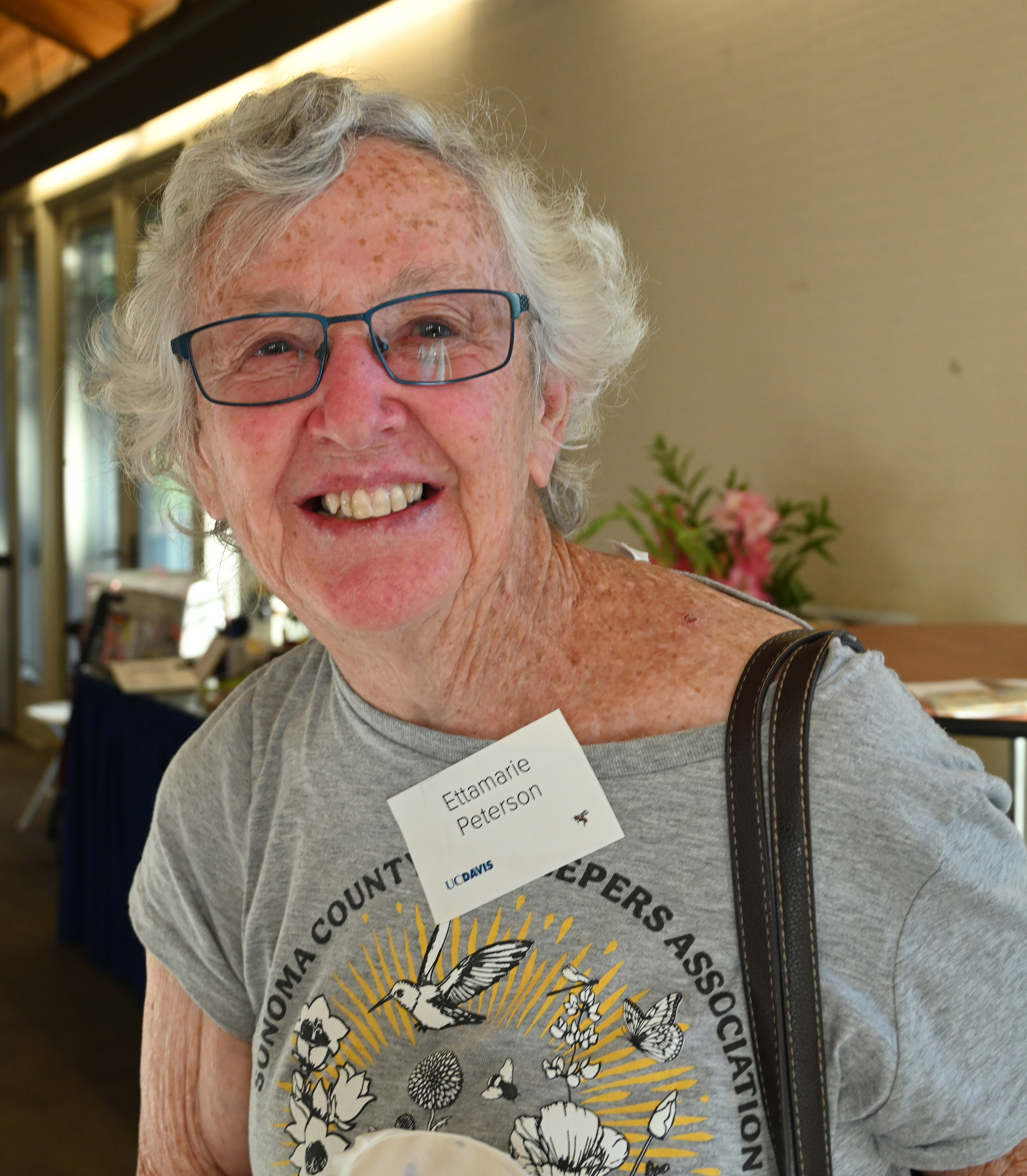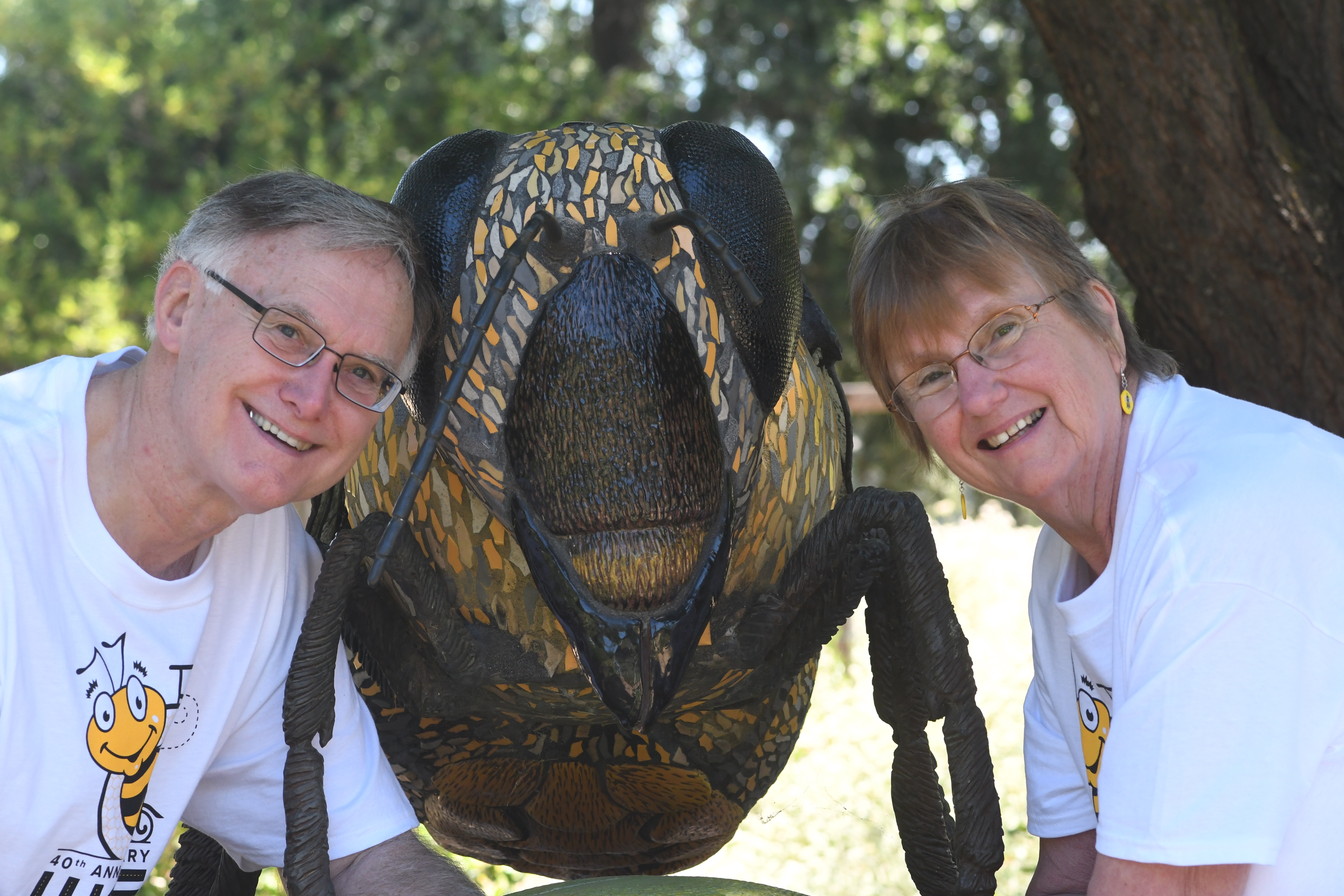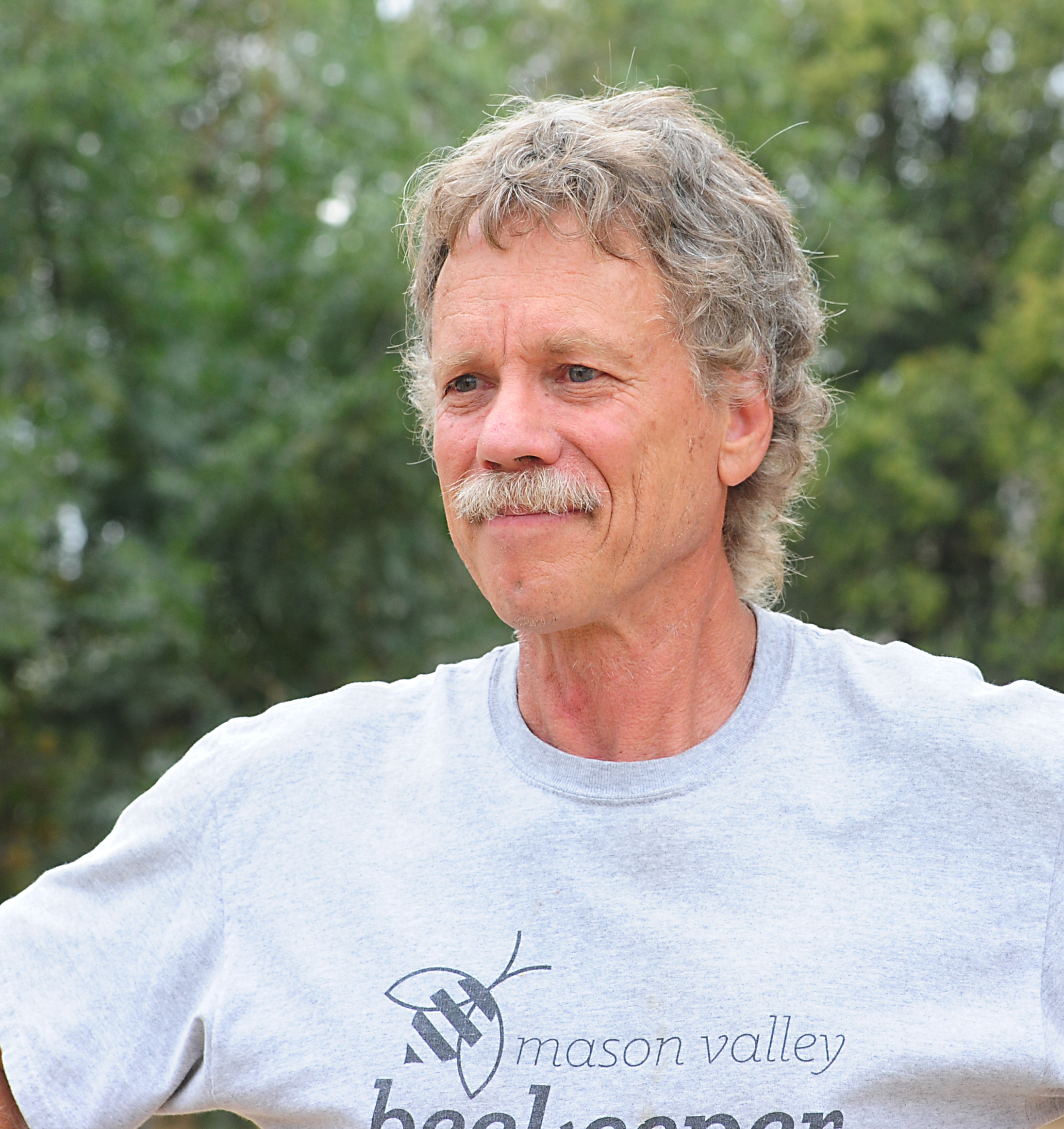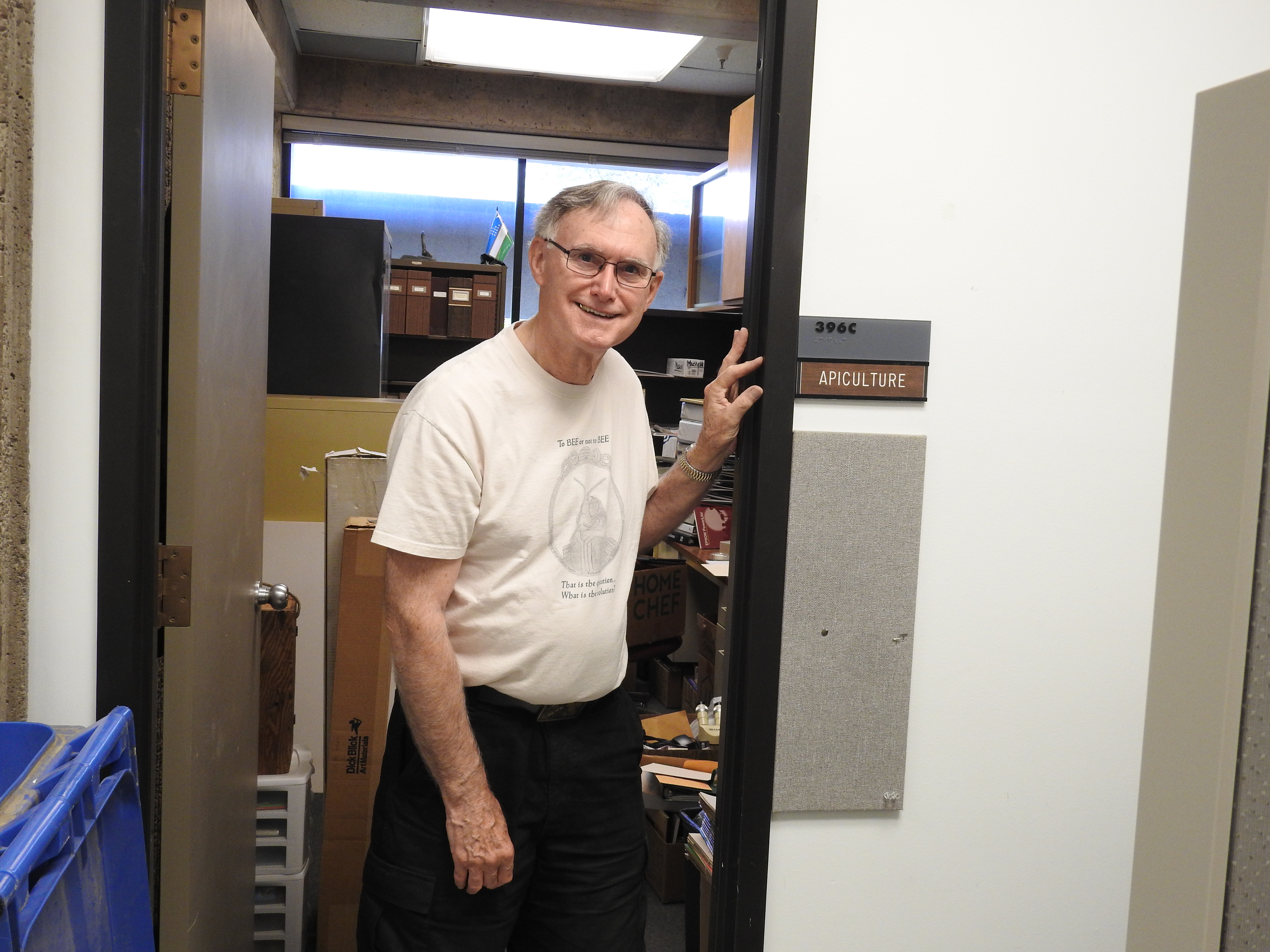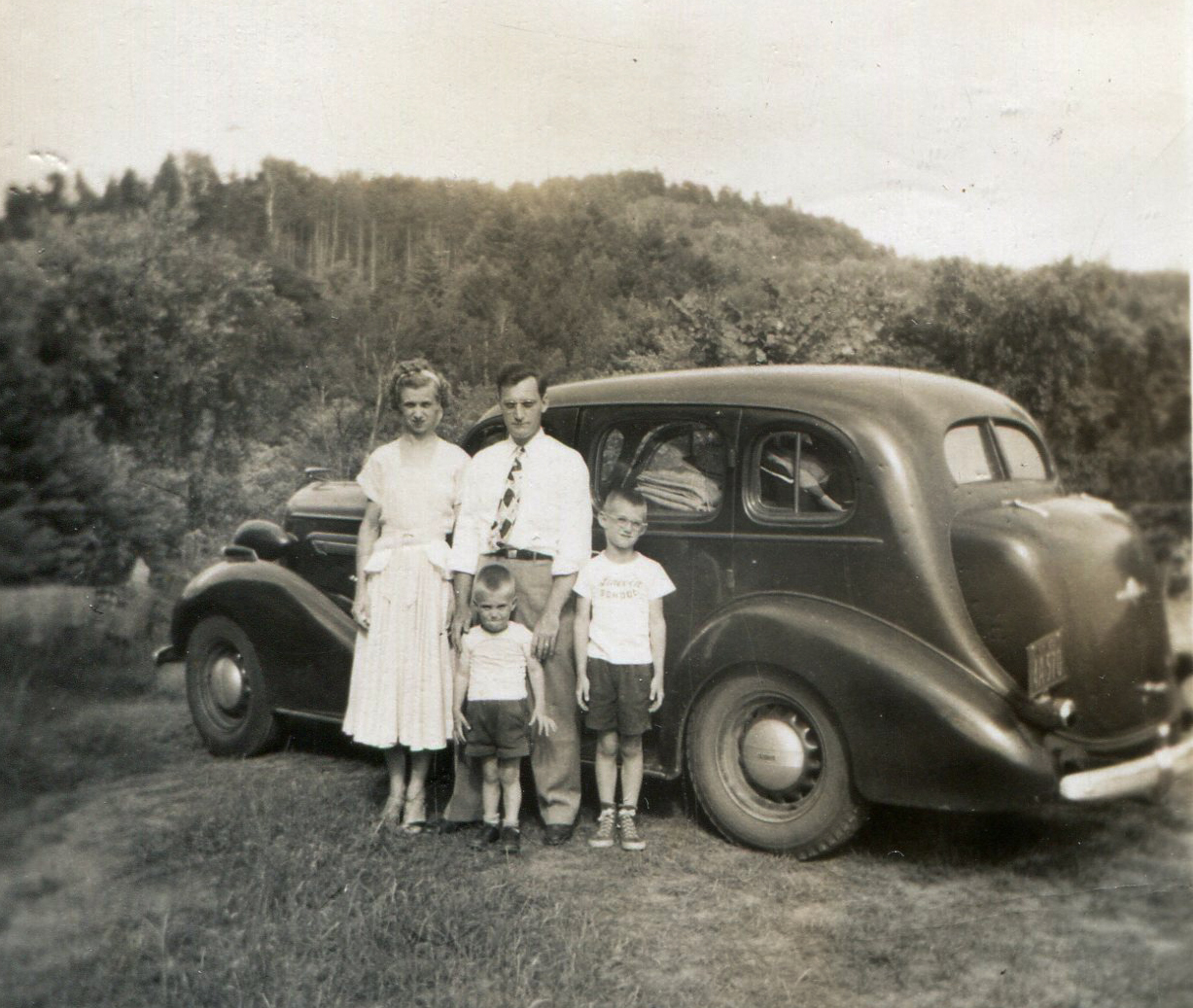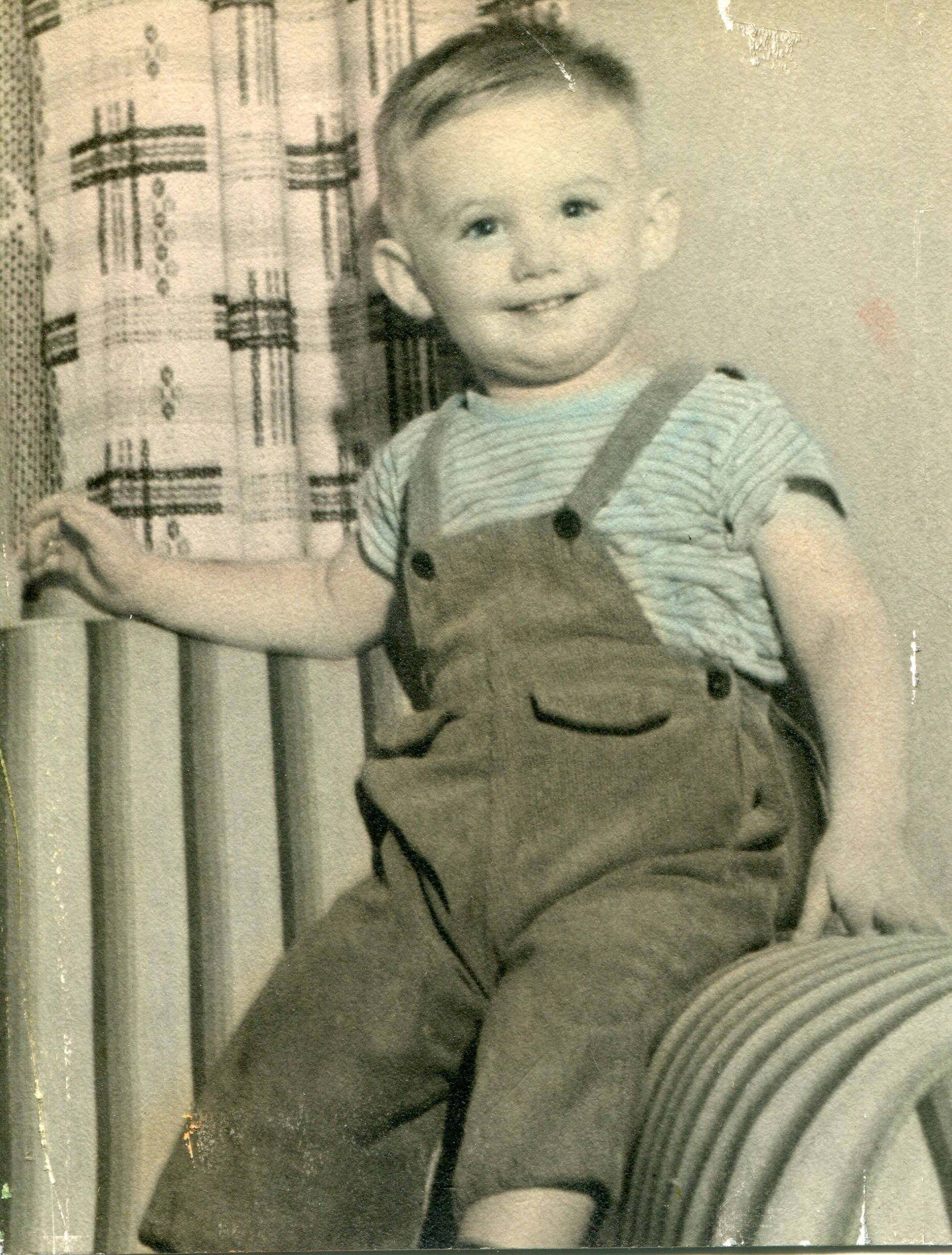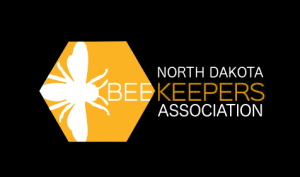By: Kathy Keatley Garvey
“During my entire apicultural career of more than 75 years, from beginning to student to retirement 26 years ago, I cannot recall any apicultural professional in the United States who has accomplished more than Eric Mussen (May 12, 1944-June 3, 2022) in terms of his beneficial contributions to all apicultural activities.”
So said Norman “Norm” Gary, emeritus professor of entomology at the University of California, Davis (UC Davis), on the passing of Eric Mussen, a 38-year UC Cooperative Extension apiculturist and faculty member of the UC Davis Department of Entomology and Nematology.
Mussen, diagnosed with metastasized liver cancer on May 31, 2022, died June 3 at his home in Davis. He was 78.
Although Mussen retired in 2014, he continued his many activities up until a few weeks prior to his death. For nearly four decades, he drew praise as “the honey bee guru,” “the pulse of the bee industry” and as “the go-to person” when consumers, scientists, researchers, students and the news media sought answers about honey bees.
Colleagues described him as the “premier authority on bees and pollination in California, and one of the top beekeeping authorities nationwide,” “a treasure to the beekeeping industry” and “a walking encyclopedia when it comes to honey bees.” News media, including The Lehrer Hour, BBC, Good Morning America, National Public Radio (Science Friday), The New York Times, Boston Globe and The Los Angeles Times, sought his expertise.
The department’s Celebration of Life and Legacy of Eric Mussen, held recently in the Putah Creek Lodge, drew a standing room-only crowd who shared and applauded him as a bee scientist, family man, athlete, angler, birder, photographer, humorist and a singer (doo wop).
Born in Schenectady, N.Y., Eric received his bachelor’s degree (1969) and master’s degree (1975) in entomology from the University of Minnesota and went on to earn his doctorate in entomology from the University of Massachusetts in 1975.
Mussen, who preferred to be called “Eric,” considered the beekeeping and almond industries his family. His family, both blood-related and industry-related, came out in force as Team Eric to pay tribute to their hero, their mentor, their confidant and their friend.
“Eric was a giant in the field of apiculture,” said Steve Nadler, professor and chair of the UC Davis Department of Entomology and Nematology. “The impact of his work stretched far beyond California.”
“The world is a lesser place without Eric,” said UC Davis distinguished professor Walter Leal, a former chair of the entomology department who produced and livestreamed the webinar, now posted on YouTube at https://youtu.be/Kj5NuQ_rBuo.
“Eric was a cherished friend to everyone here, to the UC Davis community, to his colleagues, to scientists and researchers, to agricultural growers and 4-H-ers and to beekeepers and bee enthusiasts everywhere,” Chancellor Gary May told the crowd. “He meant so much to the university and his work benefited us all. He represented the absolute best of UC Davis. He was an internationally recognized expert, dedicated to his work and passionate about helping others and making the world a better place to be. His legacy will endure. It will endure through his research contributions and extension activities that served beekeeping operations across California and the nation. It will endure through the practices he helped put in place, sharing information with beekeeping groups. It will endure through the next generation of apiculturists he helped inspire. We’ll remember his impact as the ‘honey bee guru.’ Much more than that, Eric will be remembered for his generosity, his kindness and his passion.”
Emcee Gene Brandi of Los Banos, CA, a family friend and an icon in the national bee industry, praised Eric’s newsletter, “from the UC Apiary,” as “a renowned publication that provided valuable information to beekeepers all over the country. We were very fortunate to have that.” The newsletters are online at https://bit.ly/3Es3juX.
“Eric made a difference,” said Brandi, who served with Eric nearly four decades on the California State Beekeeping Association’s Board of Directors. Brandi, who currently chairs the Foundation for the Preservation of Honey Bees, Inc., also served as president of American Beekeeping Federation and chaired both the California Apiary Board and National Honey Board. “To paraphrase a good friend of mine, (beekeeper) John Miller, ‘The people who really make a difference in this life are those who make things better. Eric Mussen made things better for the honey bee, beekeepers and the entire beekeeping industry and for that we are very grateful.’ ”
Timothy “Tim” Mussen described his father as “a strong, caring and reliable man who devoted his life to serving as a scientific expert in his field… it was clear to me that my father cared deeply for both of his families: his biological family at home and his professional bee biology family… If he were to provide some life advice, it would probably be: First, to pursue your interests. Second, to cherish your time that you have together. And the third would be to save the bees.”
Bob Curtis, former director of Agricultural Affairs, Almond Board of California, and a friend and colleague of Eric’s since 1976, said that “Eric Mussen spent a long career helping people and changing the landscape of beekeeping. He left a legacy of gentle guidance, integrity, partnerships, mentorships, productive communication, towering knowledge and love and respect from the people he touched.”
“When people asked him questions, he listened, he really listened,” Curtis said, adding that he “served an extremely diverse clientele as he listened to and guided everyone who came to him.” They included professional beekeepers, scientists, students, 4-H youth, bee hobbyists, fellow Extension advisors, news media “and many, many more.”
Curtis noted that Eric was a “huge mentor for the almond industry and taught us best bee pollination practices. He kept up with the literature and current happenings in the industry. Many people considered him the top Extension person in the nation, if not the globe dealing with honey bees. Among his many achievements, he was instrumental in helping almond board develop the influential ‘Honey Bee Best Management Practices for California Almonds’ which is considered state-of-the-art guidance in agriculture.”
“But the most resonant part of his legacy is not the almonds or even the respect he earned as a global authority on honey bees,” Curtis said. “It was the relationships he created. It seemed pretty clear that he saw the bee industry—and in essence, those the bee industry served, including almonds—he saw us as family and he took care of both the bees and us.”
Helene Dillard, dean of the UC Davis College of Agricultural and Environmental Sciences, characterized Eric as a “revered and inspirational scientist” who “embodied the essence of what it means to be an Extension apiculturist… His legacy will live on in the department and the world of apiculture.”
Ettamarie Peterson of Petaluma, a past president of the Sonoma County Beekeepers’ Association and a 21-year 4-H beekeeping project leader, described Eric as “a great friend and teacher to all of us. When we invited him to come to our meetings, he always came. Even though he retired in 2014, Eric was always ready to answer our questions. We were fortunate to have him almost annually at our meetings.”
His talks, Peterson pointed out, were “straightforward and laced with humor. We will always remember him as a brilliant beekeeping teacher who educated so many of us.”
Peterson, who educates 4-H-ers as young as five years old, lamented that beekeepers often begin their hobby around age 50, but the “zero” should be dropped. “When you see little 5-year-old girls do hive inspections—and petting the bees—you know that Eric is probably smiling on those children and saying ‘Atta girl.’”
Glenda Humiston, vice president of UC Agriculture and Natural Resources, lauded Eric as “the epitome of UC Cooperative Extension. He was highly respected for his research-based knowledge of bees and other pollinators. He always made himself available to speak at Farm Advisor Field Days, at Master Gardener events and at 4-H community club meetings. News reporters found Eric to be an invaluable source. He always made time to talk to reporters whether it was Dan Rather or the local small newspaper.”
“Eric very patiently explained complex things like colony collapse disorder in language that everybody could understand,” said Humiston, adding that she admired “his passion for his work and his contributions” and “I am grateful for all he did.”
Extension apiculturist Elina Niño, who succeeded Eric in 2014, expressed her gratitude, commenting that “it was my honor to know him. He was a great educator and very passionate about science, biology and the beekeeping industry here in California and across the nation.”
Eric, who co-founded the Western Apicultural Society (WAS) in 1978 with fellow entomology faculty members Norm Gary and Becky Westerdahl, served six terms as president. “Eric was a strong leader,” Gary said, “and his activities helped to establish UC Davis as the cornerstone of beekeeping educational activities in the West. Eric’s role in supporting California’s commercial beekeeping industry is legendary! He helped to solve many problems faced by this industry, the largest and most intensive pollination industry in the world. Beekeepers frequently disagreed on the best strategies for their industry. Eric had unbelievable skills in promoting effective communication between all segments of this industry, resulting in the most productive pollination activities ever developed, and involving commercial beekeepers from many other states as they complemented California bee pollination.”
Bee breeder-geneticist Susan Cobey of Washington State University, formerly of UC Davis, noted that “Eric was an icon of the beekeeping industry and beyond, a career shaper, problem solver, the information man who always had an answer or would find one and always given with integrity, regardless of the issue, biological or political, to whoever posed the question and need. His contributions, impact and love from the people he touched will live, continuing to contribute and benefit their lives. His spirit is with us.”
In a 2015 letter of support for an award nomination, Cobey wrote of Eric: “During his 38-year career at UCD, Dr. Mussen has been the go-to person for information and scientific knowledge in apiculture and various related fields. His ability to communicate complex issues, provide accurate information and present the choices available towards problem solving, made him a valuable and reliable resource for the beekeeping industry nationwide.” Highly honored by his peers, Eric received scores of university, regional and statewide honors.
Randy Oliver of Grass Valley, owner of ScientificBeekeeping.com (“beekeeping through the eyes of a biologist”) said: “Eric Mussen was not only a longtime friend and collaborator of mine, but a model for me. He was a beloved and exemplary Extension apiculturist, with his engaging presentations, interpreting the science for the benefit of beekeepers. His monthly newsletter was an important source of information to not only California beekeepers, but also to many across the United States and around the world. Eric always made time to happily share information with anyone who asked.”
“I really appreciated his courage in difficult times; he was willing to stand up for what he believed was fair and right,” said entomology professor Diane Ullman, a former department chair. “He was a great supporter of women in leadership and women in science, and a great supporter of students. He had a quiet courage and would really stand up for his beliefs.”
Jackie Park-Burris of Jackie Park-Burris Queens, Inc., Palo Cedro, a leader in the queen bee breeding and beekeeping industries, said she met Eric more than 40 years ago “and from day one he was mentoring me. He was the bee guy for the entire country! Eric was the bee industry’s connection to the scientific world. Eric understood both camps and he connected them. Eric had incredible integrity that I have never seen matched. Because of that integrity, beekeepers felt confident in sharing their problems with him, knowing their secrets were safe. Eric always voiced the opinion he felt was right, even if it wasn’t the most popular.”
Park-Burris said that “Eric told me that he looked at the bee industry as his family. When my son attended UC Davis, he and Helen made sure Ryan knew he could contact them if he needed anything. Eric even came to a function on campus that my son was in charge of to show support.”
“We loved him,” Park-Burris said. “What a sad loss for us all.”
Eric is survived by his wife, Helen Mussen, sons Timothy Mussen (Noelle) of Rancho Cordova, and their children Amber and Alex; Christopher Mussen (Jacqueline Silva), of Davis; his younger brother Alan Mussen (Lynda) and their daughter, Allie and husband, Nick Arnold, all of Peru, N.Y.; as well as other relatives in New York and Michigan.
Memorial contributions may be made to the California State 4-H Beekeeping Program, with a note, “Eric Mussen Memorial Fund.” Checks may be made out to:
California 4-H Foundation
Attn: Development Services (Eric Mussen Memorial Fund, California State 4-H Beekeeping Program)
2801 Second Street
Davis, CA 95618




